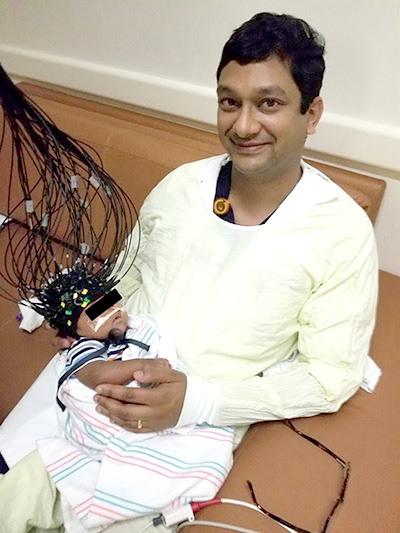UTHealth Neurosciences In the News
UTHealth Houston Scientists Develop Brain Imaging Device for Infants
 Dr. Manish Shah, one of our pediatric neurosurgeons, has worked with researchers Eva Sevick and Banghe Zhu of UTHealth’s Center for Molecular Imaging, to develop a new imaging system called Cap-based Transcranial Optical Tomography, or CTOT.
Dr. Manish Shah, one of our pediatric neurosurgeons, has worked with researchers Eva Sevick and Banghe Zhu of UTHealth’s Center for Molecular Imaging, to develop a new imaging system called Cap-based Transcranial Optical Tomography, or CTOT.
CTOT is a ground breaking creation – the wired hat uses infrared light to capture what happens deep within the child’s brain when they try to walk or move. The device utilizes the same technology as night-vision goggles worn by soldiers during the Gulf War to make several measurements across the head and use that data to map the oxygenation status. This allows doctors to predict which patients are good candidates for surgeries to lessen the effects of epilepsy and cerebral palsy, Shah said.
According to their study, the device is able to image the whole brain’s activity within three seconds of data-acquisition time. That data is used to create a tomographic image, which shows oxygenated and deoxygenated blood volumes. Those images mimic what can typically be captured using an MRI, but without requiring the child to be put under anesthesia, which has major risks for young children.











